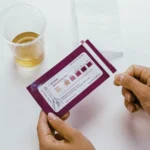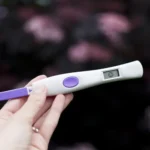Myasthenia gravis (MG) is an autoimmune neuromuscular disorder characterized by fluctuating muscle weakness and fatigue. Diagnosing MG in patients with severe insulin resistance presents unique challenges, necessitating a thorough and tailored approach.

Comprehensive Neurological Examination
A detailed neurological assessment is paramount. Clinicians evaluate:
- Muscle Strength and Tone: Assessing for weakness and hypotonia.
- Reflexes: Checking for abnormalities.
- Cranial Nerve Function: Evaluating ocular and facial muscles.
- Coordination and Balance: Identifying any impairments.
This examination helps localize symptoms and guides subsequent testing.
Serological Testing
Blood tests are conducted to detect specific autoantibodies:
- Acetylcholine Receptor (AChR) Antibodies: Present in approximately 80-85% of MG patients.
- Muscle-Specific Kinase (MuSK) Antibodies: Found in about 5-10% of cases, particularly when AChR antibodies are absent.
These tests are crucial for confirming an autoimmune basis for muscle weakness.
Electrophysiological Studies
To assess neuromuscular transmission:
- Repetitive Nerve Stimulation (RNS): Measures the electrical response of muscles to repeated nerve stimuli, identifying characteristic decrements in amplitude.
- Single-Fiber Electromyography (SFEMG): Evaluates the variability in time between action potentials of muscle fibers, known as “jitter,” which is often increased in MG.
SFEMG is particularly sensitive and can detect abnormalities even when RNS results are normal.
Imaging Studies
Imaging is employed to assess the thymus gland, which is often implicated in MG:
- Computed Tomography (CT) Scan: Identifies thymic enlargement or thymomas.
- Magnetic Resonance Imaging (MRI): Provides detailed images of soft tissues, aiding in the evaluation of thymic pathology.
Detecting thymic abnormalities can influence treatment decisions, such as considering thymectomy.
Specialized Tests
Additional tests may be utilized:
- Ice Pack Test: Application of ice to affected muscles (e.g., eyelids) can temporarily improve strength, supporting an MG diagnosis.
- Edrophonium Test: Involves administering edrophonium chloride to observe transient improvement in muscle strength, though this test is less commonly used due to potential side effects.
Considerations in Severe Insulin Resistance
In patients with severe insulin resistance:
- Medication Effects: Some treatments for MG, such as corticosteroids, can exacerbate insulin resistance. Alternative immunosuppressive therapies may be considered.
- Overlap with Diabetic Neuropathy: Symptoms of diabetic neuropathy can mimic or obscure MG manifestations, necessitating careful differentiation through electrophysiological studies.

